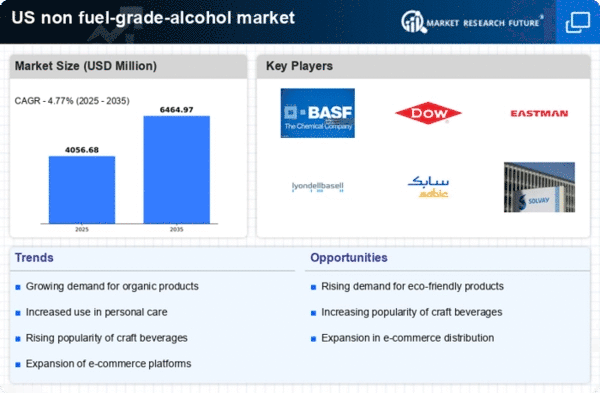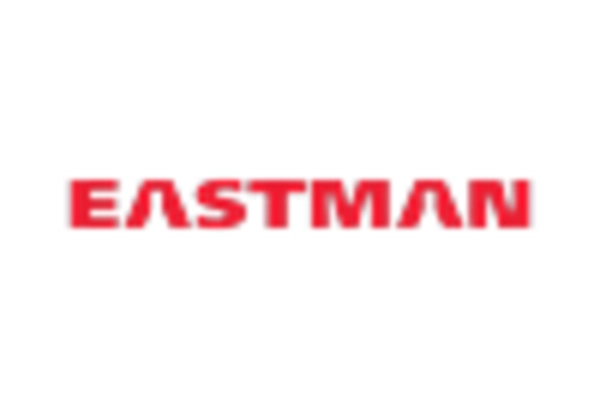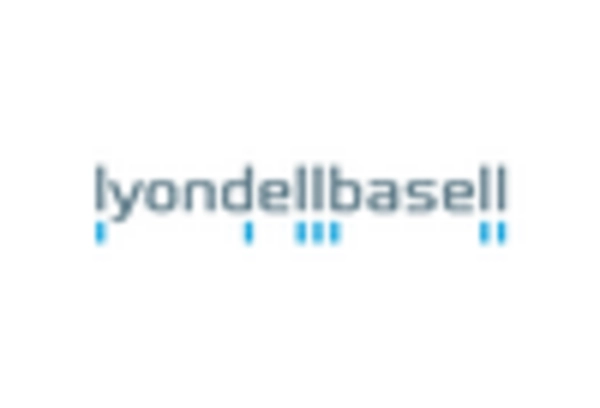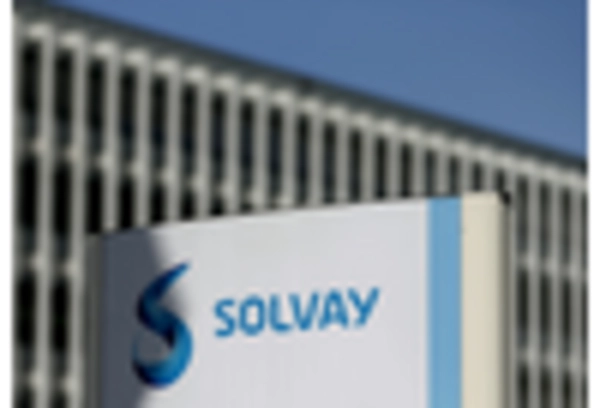The non fuel-grade-alcohol market is characterized by a dynamic competitive landscape, driven by increasing demand for sustainable and bio-based products. Key players such as BASF SE (Germany), Dow Inc. (US), and Eastman Chemical Company (US) are actively shaping the market through strategic initiatives focused on innovation and sustainability. BASF SE (Germany) emphasizes its commitment to developing bio-based alcohols, which aligns with global sustainability goals. Meanwhile, Dow Inc. (US) is enhancing its product portfolio by investing in advanced manufacturing technologies, thereby improving efficiency and reducing environmental impact. Eastman Chemical Company (US) is also focusing on expanding its bio-based offerings, which positions it favorably in a market that increasingly values eco-friendly solutions. Collectively, these strategies foster a competitive environment that prioritizes innovation and sustainability, setting the stage for future growth.In terms of business tactics, companies are increasingly localizing manufacturing to enhance supply chain resilience and reduce transportation costs. The market structure appears moderately fragmented, with several key players exerting influence while also allowing for niche entrants. This fragmentation encourages competition, as companies strive to differentiate themselves through unique product offerings and sustainable practices.
In October BASF SE (Germany) announced a partnership with a leading agricultural firm to develop a new line of bio-based alcohols derived from renewable feedstocks. This strategic move is significant as it not only enhances BASF's product range but also reinforces its commitment to sustainability, potentially capturing a larger market share in the eco-conscious consumer segment.
In September Dow Inc. (US) launched a new digital platform aimed at optimizing its supply chain operations. This initiative is crucial as it leverages advanced analytics and AI to improve efficiency, reduce costs, and enhance customer service. By integrating digital solutions, Dow is likely positioning itself as a leader in operational excellence within the non fuel-grade-alcohol market.
In August Eastman Chemical Company (US) expanded its production capacity for bio-based alcohols in response to rising demand. This expansion is strategically important as it not only meets current market needs but also prepares Eastman for anticipated future growth, thereby solidifying its competitive position.
As of November current trends in the non fuel-grade-alcohol market indicate a strong focus on digitalization, sustainability, and AI integration. Strategic alliances are increasingly shaping the competitive landscape, allowing companies to pool resources and expertise to innovate more effectively. Looking ahead, competitive differentiation is expected to evolve, with a notable shift from price-based competition to a focus on innovation, technology, and supply chain reliability. This transition suggests that companies that prioritize these areas will likely emerge as leaders in the market.
















